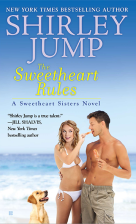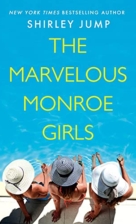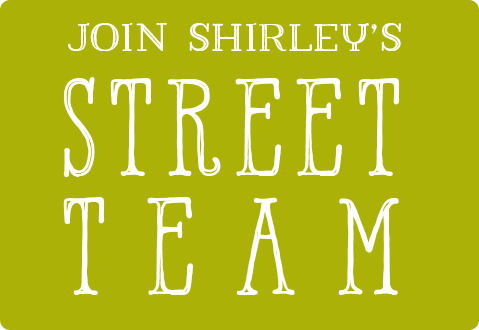Copyright 2002 by Shirley Jump
I have been to at least a dozen conferences, both small and large, and have drawn something from every single one I’ve gone to. Some have been for non-fiction (Society of Professional Journalists), some have been for fiction (Romance Writers of America) but all have taught me something and given me an opportunity to network. I have met editors of magazines at RWA conferences, readers of romance at SPJ conferences. The networking and marketing of myself as a writer happens no matter which type I go to.
Here are my tips for making the most of a conference:
Always look professional, no matter what time of day it is or where you are going. You never know when you might run into an editor or a NYT author or an agent. Those quick conversations you might have can be career changing. I have seen writers who looked like they just rolled out of bed go into meetings with editors. They are unprepared and look it. Agents and editors see you at lunch, standing in line at the restroom and in those one-on-one meetings. They are mentally taking notes on what kind of potential author you would be for them. Remember, a great deal of selling books is about marketing. Publishing houses want writers who can sell in appearances and online and even in their back cover photo. It may seem crazy, but all of this is taken into account, sometimes only on a subconscious level. Be prepared and be professional from the minute you enter the conference until you are home.
Don’t be afraid to be extroverted and talk to everyone, no matter what level they are at. This is the biggest mistake I see. Tons of people pay $1000 or more to be there (between travel and reg. fees) and then they are wallflowers throughout the conference because a.) that’s their natural personality, b.) they think they have nothing to add as an unpub or c.) they are so intimidated by the “names” there. Don’t. Make friends, talk to people. Again, one conversation could change your career. Or, it could change someone else’s. You learn something from everyone. Take advantage of this opportunity and be friendly and conversational.
Keep that name tag on. Yes, I know, they are annoying and never match what you are wearing. However, the best way to make people remember you is to be prepared. Have your name tag on and have business cards close at hand, should someone ask you for one.
While we’re on the subjectif you get to meet with an editor to pitch your book, ask her if you can give her your business card with the title of the book on it. This is an extra assurance that she will remember you and your book. Don’t be offended if she says no – there’s nothing lost here if she doesn’t take it.
Don’t sell yourself unless someone asks you to. When you’re having those conversations, you are making small talk friendly small talk. You aren’t saying “How’s the weather and oh, by the way I have this great book I wrote.” That’s annoying and obnoxious. Bring up your work only if asked. An agent or editor who likes your personality will ask about your work.
Remember, agents and editors are seeking people who can…
Market themselves. EVERYTHING in publishing, IMO, is about marketing. When you sell a book or an article or a workshop, you are selling it to the marketing team, not the editor. The editor could love your work but if the sales team comes back to her and says “We have no idea how to sell this tome on 12th century Japan to readers,” then you aren’t going to sell it. Publishing is by and large driven by profits and if you can’t demonstrate that your book or article will help that publisher make money, you aren’t going to sell it. So, throughout a conference, you want to look like a person who understands this and will be a good salesperson for her book. Editors want authors who help promote because it makes them more money. Act like one of those people.
Take advantage of everything. The late night sessions, early morning workshops. Sleep when you get home.
Eat there, stay there. Too many people leave and tour the city for one of their days at the conference or eat all their meals outside of the hotel. Remember why you are there in the first place to learn and to network.
Follow up afterwards (more on this later in the class weeks). Send out a nice letter to an editor or agent who requested your work. E-mail that author you met who gave you her card. Stay in contact, even when you don’t have work ready to submit. Just keep the editor or agent apprised of the situation (don’t stalk her, but send a note once in a while as you are finishing your 300,000-word Japanese history novel).
Bring an empty suitcase. You’ll be lugging home more free books and literature than you can imagine. Also, you’ll have other people’s business cards to keep track of :-).
A great article on networking at a conference can be found here: http://www.bluesuitmom.com/career/management/network.html
THE MEETING
The goal of marketing yourself is a writer is this: To present yourself as a Can-Do Writer everywhere you go and in everything you do. Why should you do this? Because editors and agents can easily choose another writer over you. Make them WANT to choose you and they will. Look, act and sound like you Can-Do and they will believe you can
When you meet with an editor or agent, try to be positive, upbeat and strong. Don’t use weak words or weak mannerisms. Go to the meeting prepared (jot down your information or pitch on a card if you need to). Sit up straight, smile and be approachable. I know, all of this sounds like common sense. However, it’s amazing how few of us put this into practice. We get into this mindset that the editor or agent is the one holding all the cards and this, in effect, makes us act less professional than we should.
Keep repeating to yourself “Can-Do.” When you do, you can turn negatives into positives. Editors and agents (and job interviewers) often like to ask you what your biggest weaknesses are. Make them into positives: I tend to work too much; I have this thing about never being late; etc. Try to take whatever your weaknesses are and look at them in a positive light. Do you frequently find yourself working on that mystery novel when you know you should be working? Then you are honing your skills in writing, not procrastinating.
It’s a good thing to be overprepared, too. I once had a meeting with an editor from Silhouette who didn’t want to hear about the book I was prepared to pitch. After the first sentence, she said she didn’t like the idea and wanted me to move on (this editor is no longer with Silhouette, BTW). I stammered for a second because it did come as quite a surprise, and moved on to another book that I had been working on. Luckily, I had prepared pitches on all of my books, just in case I had time or an opportunity to talk about other ones.
Remember to smile (I know, I said that before, but in all your nervousness, I bet you forget). Find something to do with your hands or better yet, keep them under the table. Have your business card handy, in case the editor or agent asks for it.
And no matter what, keep that “Can-Do” attitude alive and well! 🙂



















